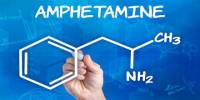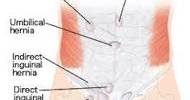According to a recent study by researchers at the University of Colorado Anschutz Medical Campus, while acute amounts of lactate, such as those produced during exercise, are probably necessary for healthy cells, chronic exposure disrupts cellular functions and can cause cancer, heart failure, and type 2 diabetes.
The study was published last week in the journal Frontiers in Nutrition.
“We know that lactate is not just a waste product,” said lead author Iñigo San Millán, PhD, assistant professor at the University of Colorado School of Medicine and associate professor at the University of Colorado Colorado Springs. “It has significant signaling and regulation properties at the cellular level.”
A key source of energy for the cell, especially the mitochondria, is lactate, a byproduct of glucose. The pounding heart, the muscles, and the brain prefer it as fuel to glucose. The material is also created while exercising and is quickly eliminated from the body by the mitochondria, which oxidize it quickly.
However, San Millán and his associates discovered that rats exposed to lactate for up to 48 hours become more prone to illness.
“We know that when lactate is acutely exposed to cells, like during exercise, it is beneficial,” San Millán said. “But chronic exposure disrupts cellular metabolism entirely.”
The question that the researchers were trying to answer was whether prolonged exposure to lactate could alter cellular processes, reduce cardiac mitochondrial activity, and make the heart less metabolically flexible.
They found that prolonged exposure to lactate significantly reduced fatty acid transport, altered cardiolipin, a crucial component of mitochondrial membranes, and decreased mitochondrial ATP, or energy generation.
We know that lactate is not just a waste product. It has significant signaling and regulation properties at the cellular level.
Iñigo San Millán
Additionally, it led to an increase in free radicals, which have been linked to type 2 diabetes and heart failure.
“We found that dysregulated lactate is probably a major player in disease,” San Millán said. “This is a rat model but we believe the results would be similar in human cells.”
Finding the processes behind the lowered lactate clearance is the next step.
San Millán has conducted in-depth study on the connection between lactate and cancer as well as the significance of mitochondrial health in general. He also coaches elite athletes, including the 2017 Tour de France winner.
His research team previously demonstrated that lactate may function as a key regulator of carcinogenesis, the process that transforms a healthy cell into a cancer cell.
“Cancer cells are producing glucose all the time and they are producing lactate all the time and it is never cleared out like it is during exercise,” he said. “This lactate accumulation regulates the expression of many key genes involved in cancer as we have recently shown.”
For San Millán, it comes down to mitochondrial health.
“We believe that a primary mitochondrial impairment or dysfunction could lead to excessive lactate accumulation leading to disease,” he said. “And right now, the only medication we have to fix mitochondrial function is exercise.”
















